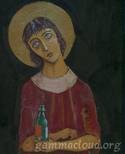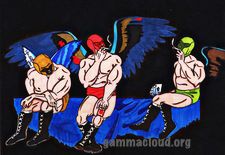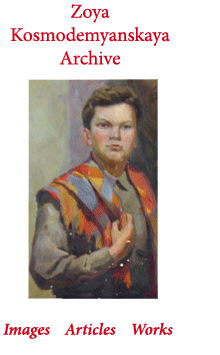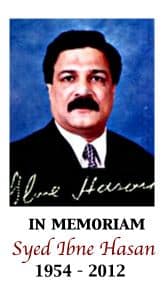I recently started reading Anton Makarenko’s 1937 A Book for Parents. Makarenko is perhaps best known for his work The Road to Life which was originally published in Russian as The Pedagogical Poem. I read the first volume of The Road to Life several years ago and enjoyed it very much, so I was excited when I found a copy of A Book for Parents some years later. But, as is the case for many bibliophiles far and wide, I always have more books than spare time on my hands. Recently though, I finally got around to giving this book the attention it deserves. I’m delving into it with special enthusiasm now that I am a stay-at-home dad, as I am always in search of new and interesting perspectives on parenthood.

Anton Makarenko 1888-1939
A Book for Parents applies Makarenko’s theories regarding childhood education to the practice of parenting. Makarenko wrote of his experiences and observations of life in rural Russia in the decades following the Civil War of 1917-1922 but there’s a lot of wisdom and insight to be found in his writings, even with the passing of almost a century. Take, for instance, Makarenko’s reminiscences of Stephan Denisovich Vetkin, a former teacher who changed professions and became a blacksmith in the hope that he could earn a better living for his wife and 13—yes 13—children. Makarenko, in an effort to help out Vetkin, finds him the opportunity to work some overtime hours at the local factory. When Vetkin politely declines, Makarenko is surprised by his decision to pass on the chance to earn additional wages. Vetkin replies by explaining why time at home with his family is sometimes much more important than earning a little extra money:
“…don’t my children need me? They need a father to be a father to them and not what I’ve seen sometimes, not a father but a horse: dull eyes, hump-back, nerves no good for anything and about as much soul as a dead duck! What’s the use of such a father, I’d like to know? Just for earning the daily bread. Why, better to bury him straight away and let the children be fed by the state—the state won’t grudge them. I’ve seen one or two of those fathers: strains his guts out, doesn’t understand anything—next day he’s on the floor, dead, and the children are orphans; and if they aren’t orphans they are idiots, because there ought to be joy in a family and not just grief all the time. And people go on boasting: ‘I’ve given up everything for the children!’ Well, you were fools for doing so, that’s all I can say—you gave up everything and the kids got sweet nothing. Maybe our food isn’t very rich, but there’s a bit of life and company in our family. I’m well, Mother’s a cheerful one and they’ve all got souls in their bodies.” 1
Makarenko is initially skeptical of Vetkin’s reasoning but upon paying a visit to the Vetkin family one evening, he is won over by their “healthy collective spirit” and “good creative optimism.”
In today’s America, there is a vocal contingent who asserts that family life should be grounded in socially conservative “traditions” and guided by metaphysical tenets. But Vetkin’s example seems to show that patience, persistence and priorities are among the most important components of a family environment in which happiness, compassion, and love will prevail and flourish.
1. This quote is drawn from the first English edition of A Book for Parents, which was published in 1954 (translation by Robert Daglish).








